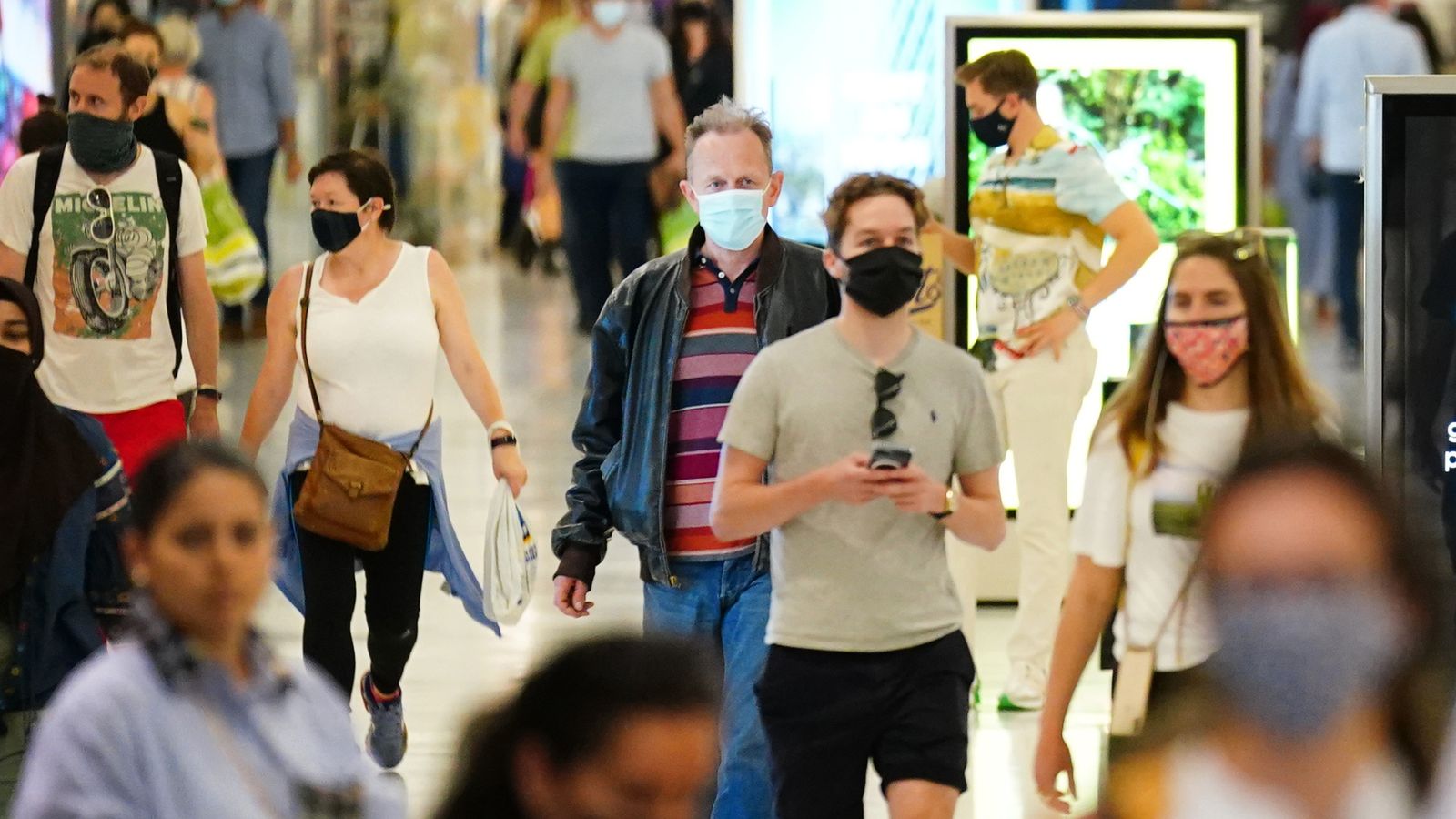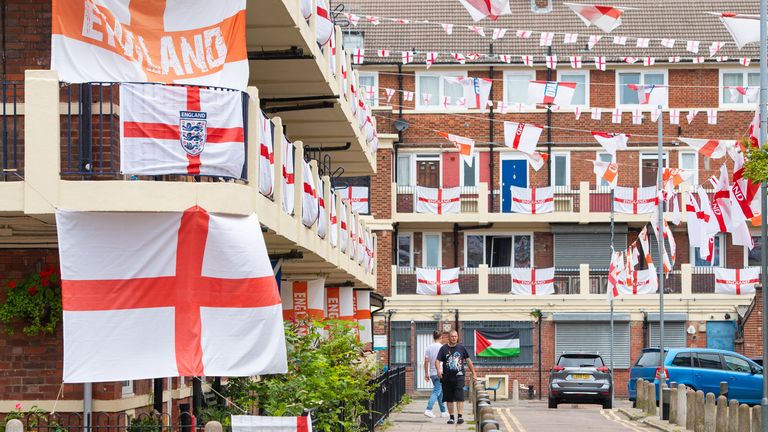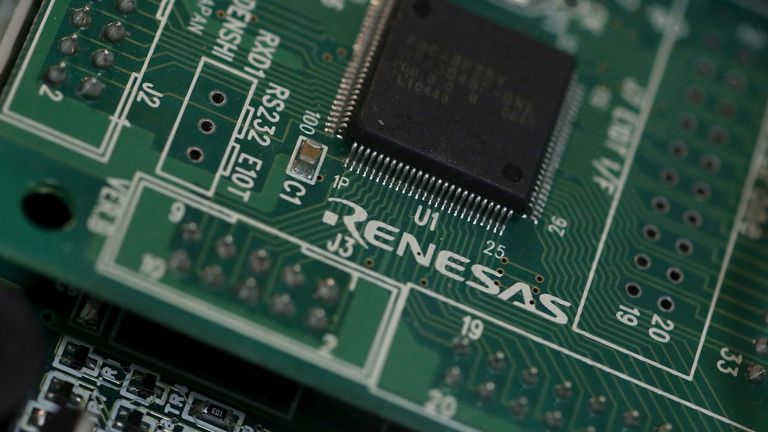Retail suffered a washout last month as the end of the Euro 2020 tournament combined with wet weather were blamed for a sharp fall in sales.
Experts also pointed to the likely impact of rising COVID-19 case numbers prompting people to self-isolate as well as the global chip shortages holding back computer and phone supply.
The Office for National Statistics (ONS) said retail sales volumes in July were 2.5% down from the previous month, taking them to the lowest level since shops reopened in April after the lockdown.
It was the biggest monthly decline in retail sales since January this year and, outside pandemic lockdowns, the largest since 2010.
The performance fell well short of economists’ expectations for a small rise in sales – and came after food store sales were boosted in June by the Euros.
Grocery retailers were also not helped by the further easing of pandemic restrictions, which opened up more places for consumers to spend their money.
The ONS added that heavy rainfall saw road usage fall, prompting lower fuel demand.
Clothing retailers, already under pressure, suffered a further decline while second-hand, computer and telecoms equipment shops also saw a slide.
Despite the setback, retail sales are still ahead of pre-pandemic levels.
The proportion of sales made online climbed to 27.9% in July from 27.1% in June, compared to a pre-pandemic level of 19.8% in February last year.
But it was lower than the levels of more than 30% seen during lockdowns.
Samuel Tombs, chief UK economist at Pantheon Macroeconomics, said: “July’s sharp decline in retail sales can be blamed largely on rising COVID-19 cases, which prompted some households to steer clear of shops and forced others into self-isolation.”
Martin Beck, senior economic adviser to the EY ITEM Club, also said the impact of consumers being ordered to stay at home was a factor.
Sarah Coles, personal finance analyst at Hargreaves Lansdown, said: “As anyone who decided to splash out on a new games console for the holidays knows, shortages of chips and hauliers kept a lid on sales of these too.
“It’s one reason why sales of new computers, telecoms and electrical goods fell back.”


